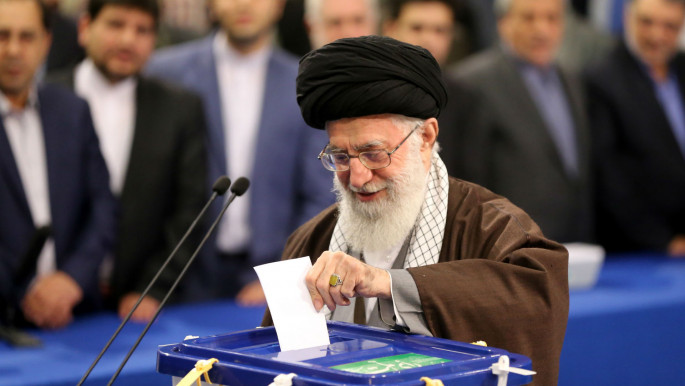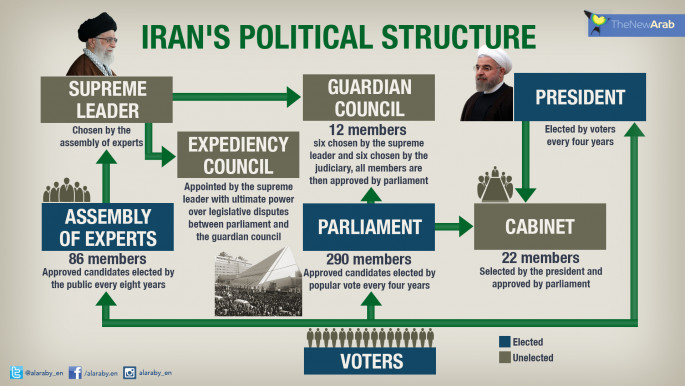Iranians vote in first elections since nuclear deal
Iranians began voting across the country on Friday in elections billed as vital to curbing conservative dominance in parliament and speeding up domestic reforms after a nuclear deal with world powers.
Voters see the poll as a referendum on the policies of moderate President Hassan Rouhani, credited with bringing about the deal that curbed Iran's nuclear activities in exchange for the lifting of crippling international sanctions.
"The results are going to depend on the turnout. Up until now the numbers look like a high turnout, which will help the moderates and reformers," said The New Arab's Iran correspondent, Farah al-Zaman.
"These are the first elections since the nuclear deal and the first where the reformers are showing a strong comeback from years past," said Zaman.
"The conservatives are also strong and could win, as their supporters are extremely loyal and will head to the polls until late in the day. The results will ultimately reveal what Iran's future holds," she added.
At the same time as parliamentary elections, Iranians are also voting for the Assembly of Experts, a clerical body empowered to choose or dismiss the country's supreme leader.
 |
|
| Iran's supreme leader casts his vote [Getty] |
Some 53,000 polling stations throughout Iran are taking ballots for the 290-member parliament and the 88-member Assembly.
Nearly 55 million Iranians are eligible to vote. State TV showed long lines of people waiting to cast their ballots in the twin elections as polls opened early in the morning.
In the parliamentary vote, reformists seeking greater democratic changes and moderates supporting Rouhani are pitted against hard-line conservatives who oppose the nuclear deal and openings with the West.
A win by reformists and moderates will give Rouhani the support he needs as he tries to repair the economy and move toward warmer ties with the western countries.
The barring of a majority of reformists from the race by the Guardian Council, a constitutional watchdog that vets election candidates, means they are unlikely to win a majority alone - but a substantial bloc elected would signal a shift in Iran's politics.
| Photo gallery: Campaigning kicks off before Iranian elections |
This month, the grandson of Ayatollah Khomeini - the leader of the 1979 revolution - had his appeal against an election ban rejected because he failed to "have enough Islamic knowledge to distinguish the next Supreme Leader".
Among those who cast their ballot in the first hours of voting was Ayatollah Ali Khamenei, the country's supreme leader, who has the final say on all state matters.
He had urged Iranians to vote, saying it was both a "right" and a "responsibility" and that a high turnout would boost Iran's image and might.
"Whoever likes Iran and its dignity, greatness and glory should participate in this election," he said after casting his ballot in Tehran.
"We have enemies who are eyeing us greedily. Turnout in the elections should be such that our enemy will be disappointed and will lose its hope. People should be observant and vote with open eyes," he added.
In the capital, Tehran, many voters had their favourite list saved on their mobile phones and used them to write the names on the ballots.
Others carried pocket-size campaign papers with the 30-seat list for Tehran. Many had blue papers, the colour of the reformist-moderate faction while others had with them yellow papers with the hard-liner lists.
A high turnout is likely to help reformists and moderates to return in significant numbers in order to reduce hard-liners' ability to block Rouhani's agenda of economic, social and political reforms.
Late on Thursday, Iran's Interior Minister Abdel Reza Rahmani Fazli predicted a turnout of 70 percent.
 |


